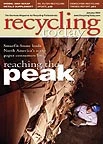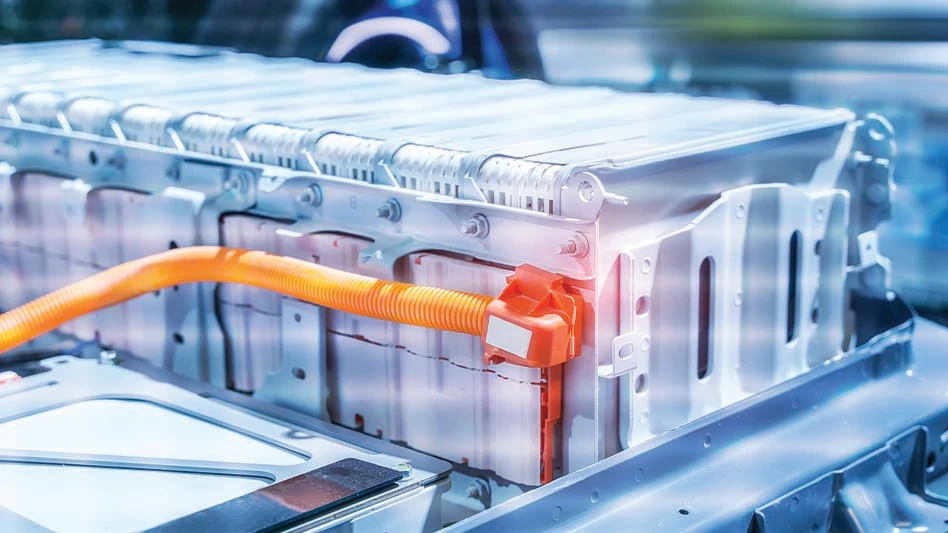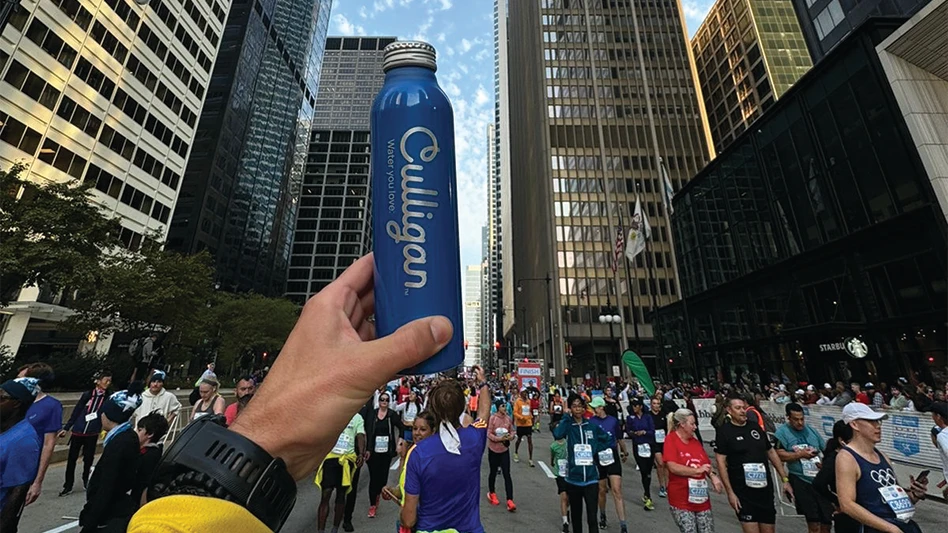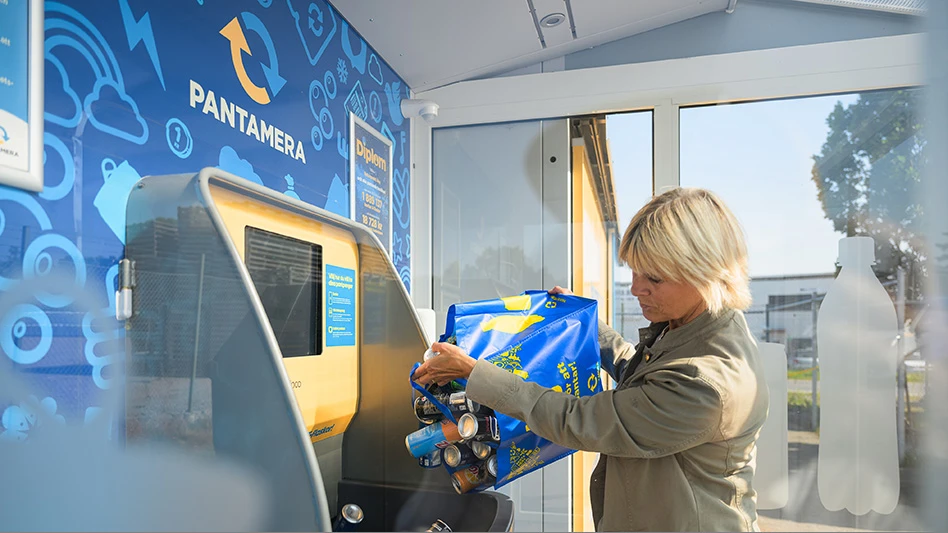One scrap processor takes a step toward improving the occasionally contentious relationship between the scrap and steel industries with a new analyzer.
The scrap and steel industries are inexorably linked. Steelmakers rely on scrap suppliers for consistent, quality streams of ferrous scrap, and scrap dealers rely on the steady consumption of steel mills. The relationship can be turbulent, but the industries are taking steps to lessen the contention that sometimes exists.
The Institute of Scrap Recycling Industries Inc.’s SCRAP3 program is an example of one such effort. According to the association’s Web site, www.isri.org, SCRAP3 "aims not just to be good for individual businesses, but for the industry and for consumers, too. It will help the industry attain regulatory flexibility and improved public image and will help consumers become more competitive globally." As such, one of the program’s goals is to improve customer satisfaction by improving product quality and consistency.
One Southern scrap dealer has taken quality control into his own hands, and he hopes "to create savings and value for our consumers by monitoring and controlling our process to produce improved products for them." That scrap dealer is Ben Morris of Morris Recycling Inc. (MRI), New Albany, Miss.
GOOD CHEMISTRY. Morris is also involved in ISRI’s Scrap3 efforts, having helped design the program as well as helping to introduce and explain it to ISRI members. MRI’s efforts to offer scrap with reliable chemistry go hand-in-hand with Morris’s efforts to increase the industry’s ability to demonstrate consistent quality methods through certification.
Morris has installed the CrossBelt Recycled Metal Analyzer, which is manufactured by Thermo Gamma-Metrics, a wholly owned subsidiary of Thermo Electron Corp., Waltham, Mass., and distributed by Cincinnati-based Gamma-Tech. The analyzer uses prompt gamma neutron activation analysis (PGNAA) technology, a method based in nuclear physics, to perform a real-time composite analysis on streams of shredded ferrous scrap. (For more information on the CrossBelt analyzer, please see "Talking About Throughput," page 84 of the Nov. 2003 issue of Recycling Today.)
MRI will market the ferrous scrap as "Gamma Shred." Morris says the material will be an ISRI-spec product, but with a known chemistry.
Before the company can begin marketing its "Gamma Shred," MRI will need a month or two to attune its process. "We’ve got to find out what chemistry our shredded auto bodies are," Morris says. "We’ve got to take all of our different feed stocks and shred them alone to find out the chemistry." Once the chemistries of the individual feed stocks are known, the company can write a "recipe" for its ferrous shred.
"Once we’ve made that recipe and start using it, we may realize that it isn’t exactly our favorite way to make it. That’s the maturity process that we’ve got to go through," Morris says.
"The primary controlling element from day one will be copper," he says. "That’s the well proven chemistry control that the market is willing to pay for: a known copper [content]."
Morris says MRI will be targeting a .12 or .15 copper content, but that steel mills will find it beneficial to have a known copper content in general.
"It’s not just that we can manufacture a low copper product, it’s that we can give them a known chemistry," he says. "The analyzer is online, second by second, giving a readout to the crane operator, telling him what we are producing. If we hit high chromium or high copper, we can change what we are putting into the shredder to correct the poor chemistry."
Morris adds, "By using this method on products such as shredded, we will be able to effectively control the product quality and truly manufacturer material specific to the needs of our consumers."
He continues, "The knowledge of the chemistry of the finished product will allow MRI to improve our ability to remove the undesirable elements using our people and additional technology."
Additionally, MRI can use proven science and common terminology when commicating with customers.
MORE TO COME. MRI will also use its unit to analyze nonferrous scrap, but Morris doesn’t expect to do so until the second half of 2004. "We are going to get our legs underneath us and approach it kind of conservatively and make sure we’ve got the ferrous solved first before we step off commercially marketing the nonferrous," he says.
Morris hopes the ability to control the quality of MRI’s product will reduce the "over-designed" scrap charges and dilution programs that steel mills currently employ. "The customers will now know exactly what they are buying and be able to use the material to reduce costs in their operations," he says.
Sponsored Content
Labor that Works
With 25 years of experience, Leadpoint delivers cost-effective workforce solutions tailored to your needs. We handle the recruiting, hiring, training, and onboarding to deliver stable, productive, and safety-focused teams. Our commitment to safety and quality ensures peace of mind with a reliable workforce that helps you achieve your goals.
"Ultimately, this program should reduce or eliminate the subjectivity and contentious nature that may have existed between steel mills and processors," Morris says. "Products will no longer be sold based on physical description and accepted based on visual inspection. We will be working with them on what is important to them, the metallurgical or value-in-use of scrap."
Morris says he believes it is the obligation of every scrap dealer to help his consumer. "We’ve got to care about their success."
He is quick to stress that the cross-belt analyzer is just one tool available to improve the relationship between scrap processors and scrap consumers, and that scrap processors need to consider customer service as well. "This is an objective tool to engage in dialogue and to build trust," Morris says. "It focuses my people to be actively engaged in manufacturing target quality and on the importance of the customer."
The author is associate editor of Recycling Today and can be contacted via e-mail at dtoto@RecyclingToday.com.
Get curated news on YOUR industry.
Enter your email to receive our newsletters.

Explore the January 2004 Issue
Check out more from this issue and find your next story to read.
Latest from Recycling Today
- Nucor expects slimmer profits in early 2025
- CP Group announces new senior vice president
- APR publishes Design Guide in French
- AmSty recorded first sales of PolyRenew Styrene in 2024
- PRE says EU’s plastic recycling industry at a breaking point
- Call2Recycle Canada, Staples Professional expand partnership
- Circular Services breaks ground on north Texas MRF
- Tariff uncertainty results in choppy nonferrous scrap flows







